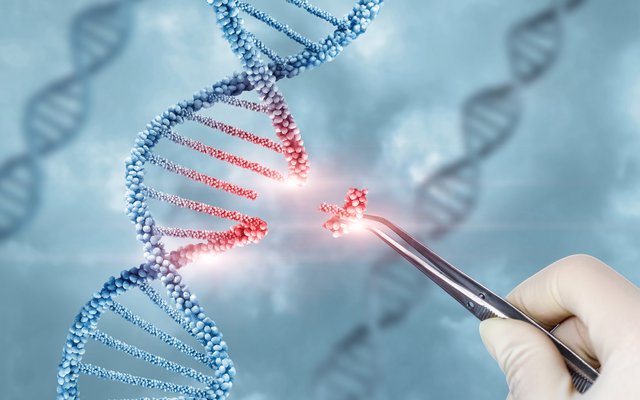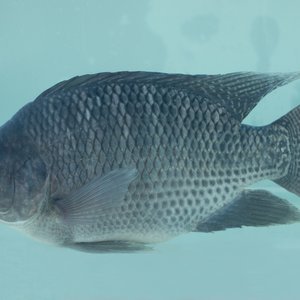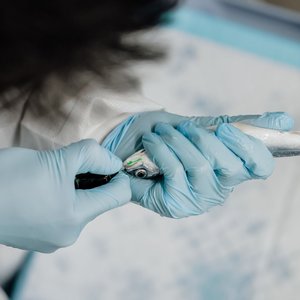Genetic techniques are developing at a high speed. New methods and approaches are continuously advancing and are becoming increasingly relevant in food and feed production. For this reason, the Norwegian government appointed a committee to update and review the knowledge across various disciplines and see how regulations and future policies can be adapted to these new opportunities. The results of the consultation, published in NOU 2023-18: Gene technologies in a sustainable future, showed that the majority of the committee recommends changes in the regulation of organisms and products developed using gene technologies.
Benchmark, AquaGen, Mowi and Salmar, as the vast majority of salmon egg and genetics supply to the Norwegian and global salmon farming industry, responded supporting the majority of the committee on the point that “gene technology can contribute significantly to a more sustainable future. However, today’s regulations and implementation create too many obstacles to realize its potential”.
The companies also agree with the majority’s view that “it is ethically most proper to facilitate increased use of gene technology, and therefore, proposes a significant change of direction that will provide a more predictable, risk-proportional and resource-efficient path from research and innovation to market, for products and organisms developed with gene technology.”
The potential of precision breeding
Applications of precision breeding techniques, and particularly gene editing, have transformative potential to tackle some of the most pressing health, welfare and environmental challenges facing salmon farming today. The four companies are undertaking research and development to this end, such as genetic resistance to sea lice by precision breeding, genetic resistance to viral pathogens, and sterility projects that involve both precision breeding and other non-precision breeding technologies.
Precision breeding versus GMO
The companies agree that the committee’s proposals are in line with regulatory changes proposed in England, which specifically states, “Precision breeding refers to the use of modern biotechnology to produce a plant or animal with genetic changes that could also have arisen within the existing gene pool, through traditional breeding processes.”
“We agree that such precision breeding changes should be viewed and classified differently from GMOs, which should refer to transgenic organisms where foreign DNA is inserted into the species’ genome. This differentiation is critical as the current regulatory system for GMOs is prohibitive to realizing the benefits of precision breeding technology for the Norwegian aquaculture industry, and would stifle innovation in this area if continued,” the companies write.
“We believe that the precision breeding and GMO legislation should only apply to heritable changes that result from genetic technology, and not to non-heritable effects. That is why we agree with the majority proposal, which excludes non-heritable changes. This type of genetic technology, which can be used for vaccine production or gene expression modification, is already regulated by other laws,” they write.
The principles for precision breeding applications
The companies said they will apply the same strict principles to the use of precision breeding technologies as conventional selective breeding technologies.
“We fully agree with the committee that ethical justifiability is an overarching concept that includes sustainability and societal utility, and that ethical justifiability is assessed according to four central principles; utility, sustainability, fair distribution and transparency,” they write.
“We fully support the majority that any risk relating to the use of precision breeding primarily depends on the product's characteristics, and that the risk of a product produced with precision breeding does not differ from the risk of a corresponding product produced using conventional techniques if the genetic changes can be considered to be similar or identical.”
“We agree that individual approval of precision breeding products should be applied based on a proportional risk-benefit analysis, and such regulation should facilitate the timely application of low-risk, high-benefit examples to benefit the industry and society at large. In parallel, such regulation will safeguard against any potential misuse of precision breeding technology, whereby the end result is not in keeping with the aforementioned principles of ethical justifiability.”
“It is our strong opinion that these decisions should be based on the outcome of the genomic change and resulting trait(s), not on the specific use of the PB methods themselves,” they write.
Authorities and legislation
The companies also support moving the legislation and administrative responsibility for approvals from the environmental ministry/agencies to the food authorities and food regulations. This will ensure the Norwegian regulation is aligned with the way the EU organizes the regulations and policies.




![2e3e645a-6435-4a4e-a184-1c3f84dcfc2b[74]](/media/images/2e3e645a-6435-4a4e-a184-1c3f84dcfc.2e16d0ba.fill-300x300.jpg)








